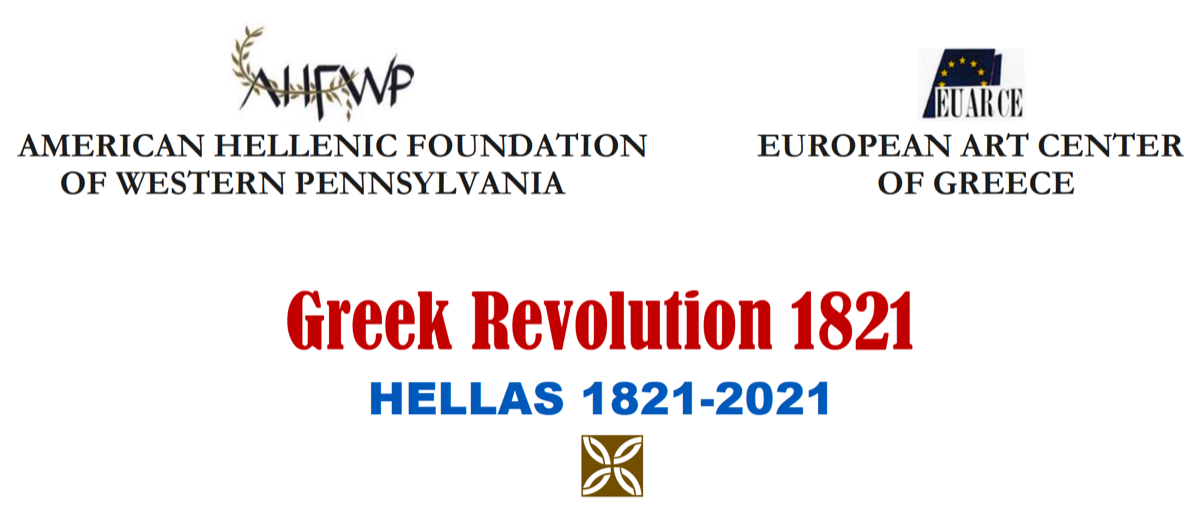
Sunday March 28th, 2021
6:00 PM
Prometheus Resurrected: The London Protocols
Celebrating the friendship of France, Great Britain, Russia, and Greece
in the Rise of the Modern Greek Nation through the London Protocols of 1827-1832
A Joint Program
Uniting the French, English, Russian and Greek Rooms
of the Nationality Rooms Program at the University of Pittsburgh
and
the European Art Center (EUARCE) of Greece
Commemorative Program Book
Click to View and Download
Tonight’s event brings together our communities – the descendants of those who came to our area here in Western Pennsylvania from France, Great Britain, Russia, and Greece. We have come together, through our respective Nationality Rooms at the University of Pittsburgh, to celebrate the London Protocols in the context of the Bicentennial of the Greek Revolution.
Many would consider March 25th 1821 the beginning of the modern Greek nation. Instead, the true beginning is February 3rd, 1830, 191 years ago. That day marked the formal declaration of the independence of Greece and it was only possible because of the strong support by the “Three Powers” of the time; Great Britain, Russia, and France. This milestone was achieved in a stepwise fashion, inside the process of the “London Protocols” which we are celebrating tonight. In the program book downloadable by clicking here, we present a timeline and short summary of each of the individual components of the London Protocols.
Tonight, we bring these elements alive. To learn that the philhellenism of the people of the Three Powers, through the London Protocols, and a rag-tag flag hastily put together by a captain from the island of Chios, came to seal the freedom of the Morea, Mainland Greece, the Acropolis, and the Parthenon.
The choice of the Three Powers to come to the political and military support of Greece to ensure its independence was not an easy task. Were it not for the strong and sincere support and advocacy of the Philhellenes (“friends of the Hellenes”) and much of the public in these nations, the Three Powers may have acted against Greek independence. Indeed, in the early 18th century, the political elite and leadership of Great Britain was not in favor, and neither was the Russian Czar, Alexander I. The balance of power and the need for a period of peace following the Napoleonic Wars made independence movements unpalatable for the rulers and the ruling elite of these Empires. It was France that initially sympathized with the Greek cause, and primarily because of a strong current of Philhellenism and the sharing of the values and tenets of the Enlightment between French people and Greek leaders inside Greece and in different countries of Europe.
Tonight, the Greek-American community honours those leaders, Philhellenes, and common people, of France, Russia, and Great Britain, by honouring their Nationality Rooms in a soiree of poetry, music, song, and tribute. The Greek-American Community is thankful to the ancestors of our sisters and brothers represented by the friends and members of their respective Nationality Rooms who came to the support of Greek independence at the most dire of moments; when it was almost extinguished by a capricious empire that was in the midst of decline.
The descendants of those people who immigrated decades ago to Western Pennsylvania and Greek-Americans share a common history and common values. Those values have served as cornerstones of our communities’ success and objectives of making our region a vibrant area of inclusivity and fraternity. Our common values declare that we are united in making our area a better place for all, those who came a century ago and those who are coming today, and will come tomorrow. The values are inherently Hellenic, and tonight’s celebration is just that:
- A synaxis of friends;
to remember where we started from,
to realise where we stand, and
to decide where we want to go
- Through our commom memories, lives and dreams, all of us have – inside of us - some part of Greece